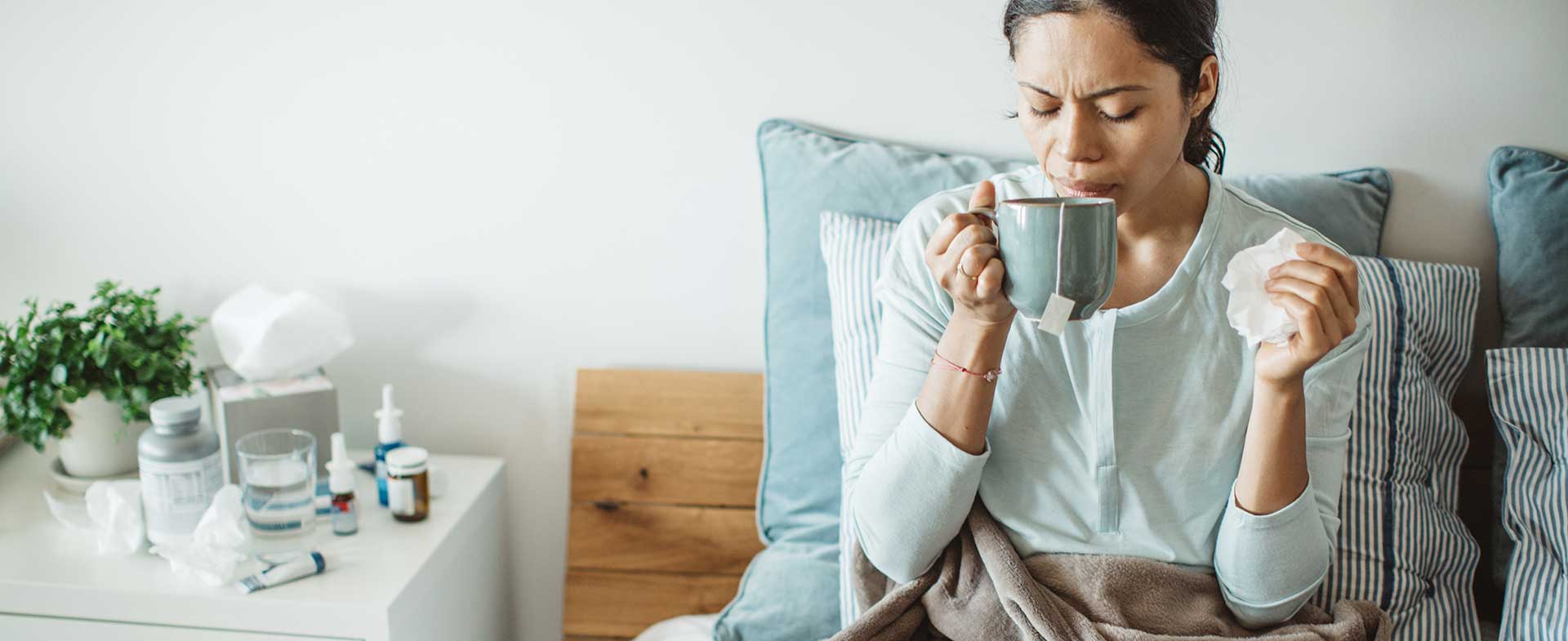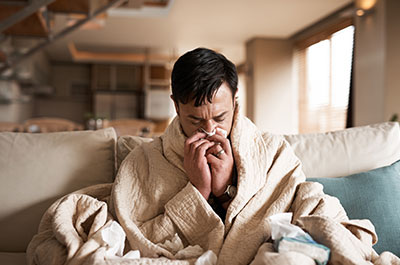Flushed cheeks, chills and feeling downright worn-out can be telltale signs of a fever. Many conditions can cause a fever, which is defined as a body temperature above 100.4 degrees F or higher.
Autoimmune issues, inflammation or cancer can drive your body temperature into fever zones. But an infection is the most common reason why your forehead may feel hot to the touch.
“Bacteria, viruses and other germs live in certain body temperatures, and when they cause an infection, the body raises its temperature to destroy them. Fever is the body’s defense system to kill these invaders,” explains Li Li, M.D., an internal medicine physician at Henry Ford Health.
How To Manage A Fever At Home
That effort of fighting off an infection is why a fever can make you feel weak, achy, nauseous and generally uncomfortable. Research suggests that most fever-causing infections will clear up without treatment. Dr. Li offers some tips for making yourself more comfortable at home while you recover.
Get plenty of rest
Staying home from work or school due to sickness may seem like an opportunity to catch up on your personal to-do list. But letting your body rest and relax helps you get rid of your fever and start feeling better. If you need permission to binge watch a new show, here it is.
Drink more fluids
Your risk of dehydration increases if a fever causes sweating, vomiting or diarrhea. Dr. Li suggests drinking lots of water, decaffeinated tea with honey, juice or broth. “Chicken and beef broth contain salt and protein, which helps keep you hydrated with electrolytes and nutrients,” she adds. For kids who struggle to drink enough fluids, offer hydrating, easy-to-eat foods and drinks such as popsicles, fruit smoothies or Pedialyte.
Take lukewarm baths
An elevated body temperature can make you feel cold enough to shiver. Still, warming up with a hot bath or shower isn’t the answer. “Hot baths or showers could make your fever worse,” says Dr. Li. Try a lukewarm water bath for better fever management.

Keep clothing light
It may feel natural to dress in layers or crawl under a heavy blanket when you have fever chills, but this can increase body temperature and cause overheating. Stick to a single layer of light clothing and avoid heavy blankets.
Try foods and herbal remedies
While a fever might leave you with no appetite, Dr. Li recommends finding ways to eat ginger and garlic. Ginger is known for helping lower inflammation, which is a body response associated with fever. Some studies report that garlic has anti-viral benefits.
Add garlic to a soup or pour hot water over a slice of fresh ginger root to make a drink. Dr. Li also suggests trying moringa tea, an herbal beverage that may help break fevers.
Consider over-the-counter medications
It’s normal to want fast relief from aches and other fever symptoms. If you’re still feeling lousy after rest and fluids, Dr. Li recommends trying acetaminophen or ibuprofen every six hours as needed. “But be careful not to take these at the start of a fever because they could mask the underlying issue,” she says.
OTC medications can also be helpful for kids older than 2 years old who are restless or have pain with fever, as long as you follow dosing instructions. Call your child’s pediatrician if they are under 2 years old and have a fever.
When To See A Doctor For A Fever
While most fevers can be managed at home, some warrant a trip to the doctor. “Generally, if your temperature is persistently higher than 103 degrees F and you’re in pain, you should seek medical advice,” Dr. Li says. “Anyone 65 and older and immunocompromised people should seek advice early.”
For adults with fevers, she adds that experiencing headache, nausea, abdominal pain and mental status changes like confusion are signs that it’s time to see a doctor.
For children with fevers, the American Academy of Pediatrics suggests calling a doctor if:
- The fever is high (over 103 degrees F)
- Your child has experienced a seizure
- Your child is 2 or younger and feverish for more than 24 hours
- Your child is older than 2 and feverish for more than 72 hours
- The fever accompanies symptoms such as severe ear pain, stiff neck, abdominal pain, or recurring vomiting or diarrhea
“If you have questions or concerns about caring for a fever at home, go with your gut feeling and call your physician, whether it’s for a sick adult or child,” says Dr. Li.
Reviewed by Li Li, M.D., an internal medicine physician who sees patient at Henry Ford Medical Center - Livonia.



